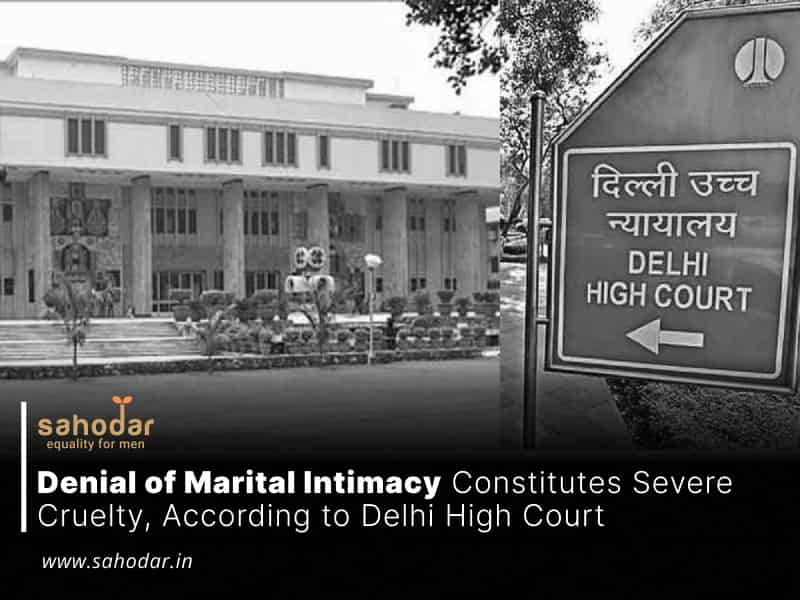The Delhi High Court ruled that cruelty is manifested when a couple is deprived of each other’s companionship, emphasizing that a marriage cannot endure under such circumstances. It deemed the withholding of a conjugal relationship as an extreme act of cruelty.
Under Section 13(1)(ia) of the Hindu Marriage Act, 1955 (HMA), the Court granted a divorce decree to the husband. The decision was based on the understanding that a relationship already concluded brings only suffering and distress, and permitting its continuation would amount to mental cruelty. The court stressed that prolonged legal disputes sustaining marital bonds only lead to increased cruelty and bitterness.
A Division Bench of Justice Neena Bansal Krishna and Justice Suresh Kumar Kait observed “It needs no reiteration that the bedrock of any matrimonial relationship is cohabitation and conjugal relationship. For a couple to be deprived of each other’s company, proves that the marriage cannot survive, and such deprivation of conjugal relationship is an act of extreme cruelty.”
Advocate Pankaj Pandey represented the appellant, while Advocate Stuti Gupta represented the respondent.
The parties entered into matrimony in 1998 and were blessed with two children. The husband alleged that the wife, characterized as greedy, quarrelsome, and jealous, frequently demanded substantial sums for personal needs. Despite fulfilling matrimonial obligations, the wife purportedly mistreated his widowed mother, prompting her to leave the house for extended periods. The husband also claimed instances of the wife leaving the matrimonial home without cause. In response, the wife denied these allegations, attributing her departure from the matrimonial home to domestic violence. She asserted cruelty and abuse by her husband, seeking maintenance under Section 125 CrPC and filing a complaint under Section 12 of the Protection of Women from Domestic Violence Act, 2005 (DV Act).
The Family Court found no specific instance of cruelty proven by the husband and concluded that he failed to establish cruelty, resulting in the dismissal of the divorce petition.
Challenging this decision, the husband filed an appeal, contending that the wife’s intolerance towards the mother-in-law was the primary cause of marital discord. He argued that the wife’s constant stress and trauma created a hostile environment, amounting to cruelty.
Citing the precedent of Samar Ghosh v. Jaya Ghosh (2007) 4 SCC 511, the Court asserted that a prolonged period of continuous separation could lead to the irreparable breakdown of the matrimonial bond, constituting mental cruelty.
Observing that the wife’s actions over the years amounted to mental cruelty, the Court granted the husband’s appeal and approved the divorce.

